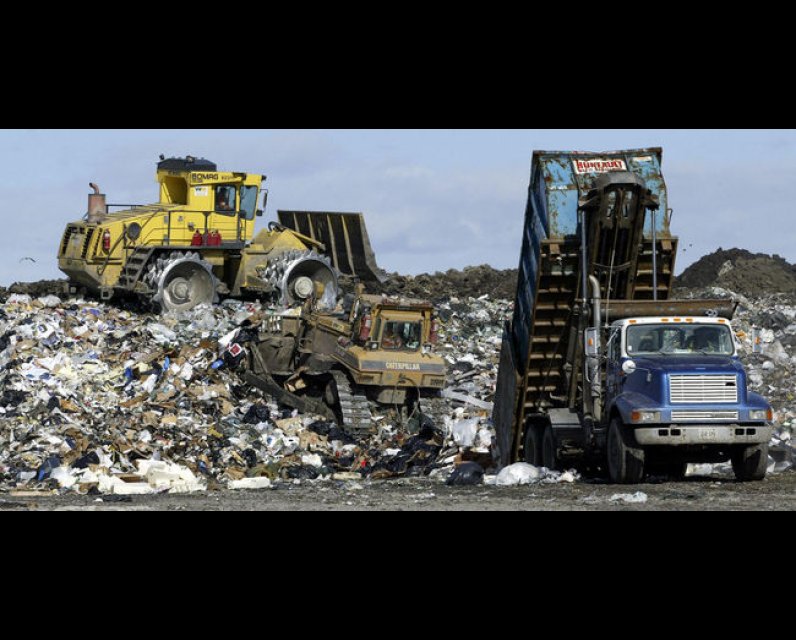Unpublished Opinions
I have trained as a geologist and worked for the federal nuclear regulatory agency, formerly named the Atomic Energy Control Board
Bureaucrats Must Be Held Accountable - Regulatory Stance on Landfills is Intolerable

From January, 2011 to April 2014 at least 13 meaningless replies have been sent from the Environmental Assessment and Approvals Branch (now the Environmental Approvals Branch) of MOE to concerned citizens regarding a landfill in, or adjacent to, eastern Ottawa. That is unconscionable.
With the importance attached to protecting people and the environment an environmental regulatory body such as Ontario’s Ministry of the Environment (MOE) is needed. What is not needed, however, is an uncaring bureaucrat at the helm of the Environmental Approvals Branch within MOE (formerly known as the Environmental Assessment and Approvals Branch) under whose mandate falls landfill regulation. That is, however, what we have.
Classifying the current director or her sometime replacement as uncaring, to which could easily be added the word "disinterested", is easy, based on written replies to letters that, commonly, had been sent to the Minister. Irrespective of the contents of the letter to the Minister, the response from the uncaring bureaucrat is a repetition of previously sent meaningless, vacuous and, by implication, insulting replies. I have copies of thirteen of them spanning the interval from January 31, 2011 to April 4, 2014, five of which were addressed to others.
None of the replies from the uncaring bureaucrat addresses the specific concern or information contained in the initiating correspondence other than to repeat it. Rather it expresses pleasure at replying on behalf of the Minister and appreciation to the writer for informing the ministry about whatever concern is raised, and may include some explanation of the regulatory process. The reply generally concludes by advising the writer to raise concerns directly with the proponent and if there are additional questions to ask them of the special project officer of the Environmental Approvals Branch. In effect the corporate reply is “Do not bother me. I don’t care a whit about what concerns you, but I am sending this reply to make you believe that I do. Rather than waste my time providing an eloquent and evocative answer I go to the computer, reach for the boilerplate, change the name and address of the addressee, print the reply and send it.”
Politicians and bureaucrats must understand that they are accountable to the people who are forced to pay their salaries. Their accountability is not, however, the common perception among many of those who do not reside in the luxurious dwellings of politics and bureaucracy. Instead the anointed residents are viewed commonly as aloof and disinterested although, in fairness, there are those who really do care and who are truly helpful.
Being helpful does not mean that each person who contacts a bureaucrat or politician should get what he or she wants. Neither politicians nor department heads can do all things for all people all of the time. However, when legitimate concerns are brought forth by serious people with supporting information, those concerns must be addressed conscientiously by the director and ADM of the ministerial department, if not the Minister. If necessary at least one meeting should be convened to work through the concerns.
There must be a reasoned exchange, not simply idiotic demands made by members of the public or intractable positions held by the bureaucrats. The end result of the collaboration(s) must be either agreement by the regulator to make the changes, or a rational explanation of why certain suggested changes cannot be made to the regulatory procedure. It must not be the all too commonly used, by now worn-out phrase in which MOE personnel retreat to the current standards being very high. If suggestions are brought forth for improvement, as they have been repeatedly, that means the current regulatory approach to landfills is deficient. Besides the written communiqués between the parties, minutes of relevant meetings must be recorded and displayed publicly. In no case, however, should the public be ignored.
MOE has gotten good advice from different groups, and must pay attention. So far that has not been the case. Science changes all of the time...good for science…and the bureaucrats must adapt to those changes. Years ago waste was disposed (no intention to retrieve it) by burying and forgetting it. Then along came Hooker Chemical and Love Canal, (http://www2.epa.gov/aboutepa/love-canal-tragedy) which woke up an entire nation, if not the world. Geological studies are not the norm for landfills, but they need to be, and MOE must implement them.
Why the resistance from the uncaring bureaucrats? Do they not want to protect people and the environment from leaking landfills? If they really do want to fulfill their mandate they are doing a magnificent job of concealing that. To illustrate just ask the residents of Carp and environs, and others in South Gower.
In closing it is emphasized that when documents required by MOE in the licensing process, such as the ToR (Terms of Reference) or the EA (Environmental Assessment), are submitted by proponents and reviewed by the public, as allegedly encouraged by MOE, then MOE must take those criticisms very seriously. Some critiques will be entirely NIMBY-based and justifiably emotional, but if there are legitimate components to those critiques, which often there are, MOE must heed them, not ignore them.



Comments
Be the first to comment